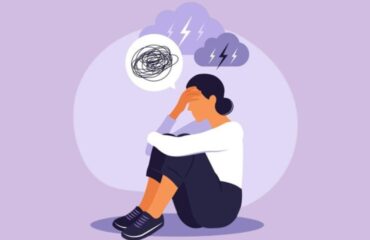Grief? When you hear this, what do you begin to think or imagine? Typically, grief reminds us of a loss, be it the death of a loved one, the end of a relationship, a job, or other significant changes in our lives. Grief, my friend, is a heavy emotional burden that arrives when we experience a loss. It’s like a stormy sea of sadness, confusion, and pain. Although it is a natural and necessary healing process, it can be excruciating.
The Psychology Of Grief
American Psychological Association defines grief as “the anguish experienced after significant loss, usually the death of a beloved person, which often includes physiological distress, separation anxiety, confusion, yearning, obsessive dwelling on the past, and apprehension about the future.”
How do you know if someone is grieving? Here are some of the common symptoms of grief:
● A feeling of numbness or disbelief
● Feelings of emptiness, loneliness, and despair
● Fear, anxiety, helplessness
● Anger, shame, guilt, regret
● Physical symptoms like nausea, change in appetite, pains, insomnia
It is important to note that experiencing grief is highly subjective. Not everyone shares the same patterns of symptoms, and there is no particular coping mechanism that works for everyone. Some people take longer to process loss, while it is comparatively easier for some.
The process of accepting loss is unique to each individual. You need help to fully understand or go through it. It’s a personal journey that you must undertake on your terms, in your own time. Remember that there is no right or wrong way to grieve, and it’s important to respect your path and give yourself the space and patience needed to come to terms with the loss you’ve experienced.
The Process Of Grieving
J. William Worden, a renowned psychologist, suggested that humans must undergo “Four Tasks of Mourning” to heal from the grief of losing someone:
1. To Accept the reality of the loss
2. To Work through the pain of grief
3. To Adjust to life without the deceased
4. To Maintain a connection to the deceased while moving on with life
Allowing yourself to navigate this challenging journey positively and productively builds resilience and endurance. A lot of the time, when you experience unpleasant emotions, your first reaction could be to push them away or bury them deep. However difficult it might be, processing loss in a constructive way is important.
Here Are Some Ways You Cope With Loss Constructively
● Accept The Loss: Only after you accept the reality of the situation can you begin the process of healing. Negative coping mechanisms like denial and suppression might help ease the pain for a while, but embracing and understanding your pain will help you deal with it effectively in the long run.
● Acknowledge Your Pain: After accepting reality, the next crucial step is to allow yourself to grieve. Of course, it is going to affect you, but the goal is to keep reminding yourself that you can deal with it. When you acknowledge the feelings that come with grief, you give yourself permission to heal. It also helps you honor the significance of your loss at your own pace. But how to do it? How can you find meaning and gradually move towards healing? You could do whatever allows you to process your emotions, be it talking to a friend, keeping a journal, or creating a scrapbook to honor your memories.
● Take Care Of Yourself: Some days, it might even seem difficult to find the energy to get out of bed. But remember, taking care of your physical health is essential for your mental well-being while dealing with loss. Do more of what you love and what gives you peace. Push yourself more to take action. Take one step at a time: go for a stroll, meditate, get enough sleep, and eat well. These things are super important in helping you cope with your grief and keeping your mind and body in a better place.
● You Don’t Have To Do It Alone: When you’re going through a tough time, having someone to talk to can be beneficial. Whether it’s a good chat with a friend or a therapist, finding the proper emotional support can lead you to process your emotions better. It gives you a safe space to express your feelings, gain insights, and receive comfort. You might also find support groups wherein you can connect with people who understand what you’re going through.
● Eliminate Guilt: Guilt can become a significant obstacle in moving forward, especially when we dwell on things we said or didn’t do before losing a loved one. When this happens, try to focus on what you can do now to honor those memories instead of what could have been done. To overcome guilt, acknowledge that it’s a natural part of grieving and shift your focus to practicing self-compassion.
● Navigate Through The Changes: There’s no doubt that grief brings along some major changes; reminders from your daily life may lead you to reminisce about your treasured memories. Know that it’s completely normal. What might help you is finding a constructive way of dealing with change is important in moving ahead with life.
Hey, when you’re dealing with loss, it’s important to remember that healing isn’t always a smooth ride. It’s like a rollercoaster with its ups and downs. Some days, you might feel the pain just as intensely as when it first happened, and that’s okay. Don’t be too hard on yourself for having those emotions. It doesn’t mean you’re stuck or not making progress. Take your time, go at your own pace, and, most importantly, be patient with yourself. Healing takes time, so don’t rush it.
Experiencing grief is a part of life. “Normal grief” is when the grief over losing a loved one begins to fade into adequate coping mechanisms within six months. However, if you are unable to accept the loss for a longer period which affects your daily functioning and causes a severe inability to move on with life, you may be suffering from a condition called “complicated grief.” Professional help in the form of grief counseling can help you deal with Mental health through loss and find the right support.





